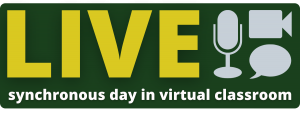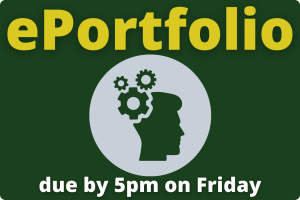Unit 1: Introduction to the Course: Anti-Black Racism in Canada
Week 1 – Day 2 – What is Race?

Today is a LIVE class day! We will be meeting in our Virtual Classroom on Blackboard. See you there!
“It is time for all Canadians to acknowledge that anti-Black racism is pervasive in Canada. In fact, the belief that there is little to no racism in Canada is in itself a barrier to addressing it.”
Marie-Claude Landry, Chief Commissioner of the Canadian Human Rights Commission
Preparing for Day 2
Today’s class will introduce you to the concept of anti-Blackness in Canada, past and present. You will be asked to reflect on core concepts and your own experiences in preparation for your first ePortfolio submission.
Required Material
 Eternity Martis, They Said This Would Be Fun
Eternity Martis, They Said This Would Be Fun
- Introduction (pages 1-10)
- All I Wanted Was to Be Wonder Woman (pages 11-28)
-
 DasGupta, N., Shandal, V., Shadd, D., & Segal, A., in conjunction with CivicAction. (December 14 2020). The Pervasive Reality of Anti-Black Racism in Canada: The current state, and what to do about it. [link]
DasGupta, N., Shandal, V., Shadd, D., & Segal, A., in conjunction with CivicAction. (December 14 2020). The Pervasive Reality of Anti-Black Racism in Canada: The current state, and what to do about it. [link]
Core Concepts
- Race
- Racialization
- The social construction of race
- Colonialism
- Social Ideologies
- Scientific Racism
- Anti-Black Racism
There are many core terms and key concepts you will be expected to know as we progress through this course. For example, you will explore power, oppression, ethnicity, culture, and race; specifically how they relate to anti-Blackness within Canada. You are encouraged to use the flashcards and other learning activities in the Key Terms section at the end of Unit 1, to learn these concepts, and brush up on terminology between classes.
Learning Activity: Reflection
Discussion Reflection
For the following activity, use your learning journal area of your ePortfolio to keep your reflections all in one place. These do not need to be released publicly, but can be if you’d like to treat it like a blog post.
In 200-250 words, choose one question to reflect on. These reflections will be brought to the next class to discuss in small groups with classmates.
- What misconceptions did you have about race before today’s class?
- How do you feel when you think about race as a social construction?
- How has your own racial narrative affected how much or how little you think about race?
Required Assessment!

This week you are asked to complete your first ePortfolio Reflection. As we will have gone through the process of setting up our ePortfolio sites together in our first class, everyone should be ready to make their first contribution. Revisit the ePortfolio information section if you need more guidance for your submission and the Racial Narrative Reflections from the Course Developers for examples.
ePortfolio: Racial Narrative Reflection (6%)
Option One: This reflection invites students to reflect on their own racial experiences, their own racial history, their own “racial narrative”. Students are asked to answer the following questions:
What did you learn about race when you were younger?
Where did those messages come from?
What kind of impact did those messages have on you?
Have your views about race changed over time? If so, what has caused that change?
What things do you want to learn more about?
Adapted from Dr. Aisha White, Positive Racial Identity Development in Early Education (P.R.I.D.E.) University of Pittsburgh.
Option Two: This reflection is meant for students to critically evaluate their own social location and racial socialization. In so doing, students are invited to expand awareness of racial biases and examine the ways internal perspectives about race influence our relationships and experiences. Students are encouraged to grapple with discomfort, not as a means to an end, but to further their intellectual growth and understand their own emotional responses. Students can choose one (1) of any of the following questions:
- What/how did you first learn about race?
- How do race, ethnicity, and culture intersect for you? How are they different? How are they similar? How do you know?
- When do you first learn that you were a member of a racial group? What/how did you learn about your racial group?
- When did you first learn that there were racial groups other than your own? What/how did you learn about this/these groups?
- How do you perceive your own race, and how is your race is perceived by others?
- Select a significant institution in your life (ie. educational, religious, media/cultural, etc.). What have you learned from this institution about race? How might this have impacted relationships and identity?
- Scan your relationships with people who have been socialized into a different racial group than yourself. Thinking back to your childhood, what have been the nature of these relationships (i.e. friends, family, teachers, service providers, mentors/coaches, charity recipients, etc.)? Have the types of relationships changed over time? What do you notice about the relationships in your life today?
Please Note: Students are encouraged to be creative. You have a variety of options for how you choose to complete your racial narratives. A written reflection should be approximately 600-800 words. If you choose a creative output (image, video, poem, artwork, or something else you choose to create), you should provide a brief statement contextualizing the creative piece; what does it mean to you? How does it relate to your racial narrative? Contextualization statements should be 150-200 words.
Some members of the course development team have created their own racial narratives as examples for your reference, and as a practice of situating themselves within this course.
Check Your Learning
Optional Material
In the video below, comedian Aamer Rahman discusses his take on “reverse racism”.
References
Landry, M-C. (2020). Anti-Black racism in Canada: time to face the truth. Canadian Human Rights Commission. Retrieved from: https://www.chrc-ccdp.gc.ca/en/resources/anti-black-racism-canada-time-face-the-truth
that which allows one group to name and classify subordinate groups and to subject them to differential treatment. Power gives individuals, groups, or institutions the ability to influence or exercise control over other people and achieve their goals despite possible opposition or resistance. (Open Education Sociology Dictionary)
the prejudice and discrimination of one social group against another, backed by institutional power (Sensoy & DiAngelo, 2017). When one group controls the institutions, they are able to enforce prejudice and discrimination through policies, practices, traditions, norms, definitions, and explanations, which function to systematically exploit one social group to the benefit of their own.
the multiplicity of beliefs, behaviours, and traditions held in common by a group of people bound by particular linguistic, historical, geographical, religious, and/or racial homogeneity. (CRRF, 2015).
a mix of ideas, beliefs, values, norms, knowledges, and traditions held by a group of individuals who share a historical, geographical, religious, racial, linguistic, ethnic, and/or social context. This mix is passed through generations, which results in a set of expectations for appropriate behaviour in seemingly similar contexts. (CRRF, 2015).
there is no such thing as race – instead, it is a “social construct.” This means that society forms ideas of race based on geographic, historical, political, economic, social and cultural factors, as well as physical traits, even though none of these can legitimately be used to classify groups of people. (OCT, 2021)

